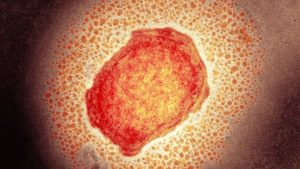Cancer, Intermittent Fasting and the Ketogenic Diet

Written by Sera Chin – Dietitian
In a scientific plant-based nutrition and medicine congress (VegMed 2018) held in Berlin this April, intermediate results from an on-going preliminary study on the effects of intermittent fasting with a plant-based diet in the treatment of cancer were presented. One of the participants of the study, who was in her post-recovery phase from breast cancer shared her overall experience of the diet regime, which were mainly positive. Since then, this has opened up more possibilities that intermittent fasting could support cancer treatment. Theoretically, intermittent fasting and ketogenic dieting are similar. However, they are not the same.
Cancer is not necessarily a death sentence. In fact, with proper treatment, diet and lifestyle changes, certain cancers such as breast, prostate and thyroid cancer can be treated. There may be chances that it may return, therefore it is still recommended to attend regular check-ups and perhaps continue with the previous diet regime until the body condition is stabilized. Some would choose to stick with a low-carb, fat-free diet or stray away from electronic devices. Some are myths, some are not. Myths can be found and debunked on trusted websites, which you will easily have access to. With all the hype going on with the ketogenic diet and intermittent fasting, it would be interesting to know if it supports the treatment of cancer.
Sugar and Cancer – a sticky love story?
This is highly related to how intermittent fasting and ketogenic diet work on the body, particularly to cancer cells. Some believe that quitting sugar cold turkey would shrink cancer cells and this belief originates from a study with the lab rat brain tumour model. Results have shown that the brain tumour cell consumed more glucose (simple sugar) than normal healthy cells. However, this does not imply the opposite, whereby cancer cells may shrink in the absence of sugar intake because not all cancer cells are sensitive to a sugar-strike.
Healthy cells, including our immune cells and cancer cells, need fuel to survive. We may question the rationale behind this theory, as our natural defense mechanism requires fuel to fight against that outraged mass of cancer cells. Healthy cells that are nutrient-deficient will cause the body to be more vulnerable to other health complications. On the contrary, this concept does not apply to the ketogenic diet.
Intermittent Fasting
Intermittent fasting is not a diet but a diet pattern. It is currently a trend among bodybuilders and for people who are seeking to shred fat and lose weight. It is generally variations of alternating cycles of eating and fasting.
How is it favourable and attractive in the treatment of cancer? In the past decades, studies in caloric-restrictive intermittent fasting have shown consistent results that it reduces oxidative damage to cells and inflammatory stress. Other results from relevant studies show that it improves the regulation of blood sugar, increases the body’s metabolic rate and increases the sensitivity of the immune system. This means the natural defense mechanism is triggered to fight against the growth of cancer cells and hence able to slow the progression of those malignant cells.
As to all studies, there is no definite conclusion if it helps 100% in the treatment of cancer, as cancer has a combination of risk factors.
Ketogenic Diet a.k.a Keto-Diet
The high-fat and low carbohydrate macronutrient distribution in the ketogenic diet aims to trick your brain into starvation mode, initiating your body into the state of ketosis (ketones formed), which is a process of using fats instead of carbohydrates as the main source of energy. This diet is known to be challenging for many people.
The New Wonder Diet Against Cancer?
The concept of this diet is similar to the dietary practice of intermittent fasting. Studies investigating the effects of the ketogenic diet has results similar to intermittent fasting.
In a study, mice were placed under a calorie-restricted ketogenic diet. An increased anti-tumour effect was shown during the radiation of their brain tumours. Inflammation and growth of cancer cells were reduced and metabolism was also restored. Similarly, patients with advanced cancer in a study have shown positive results, in terms of limiting cancer growth possibly due to the reduction of insulin production. They have also shown better disease conditions and fewer signs of remission. However, more studies and investigations are required to prove the effectiveness and safety of this diet.
How Does The Diet Generally Look Like?
As mentioned, high in healthy fats and low in carbohydrate: lots of vegetables, including medium-chain triglycerides (MCT) into the diet, good fats from natural sources such as seeds, olives, avocados, and lean protein. Similar to most sustainable and healthy diets, it is recommended to consume the least or no processed food at all.
How Does It NOT Work?
and eventually increases your risk to other diseases
Everyone knows or should know that having rich meals loaded with red meat, full-fat cream or everything buttery would leave your body prone to cardiovascular diseases, certain cancers, and insulin-insensitivity. The goal of this diet is to create an illusion that your body is in starvation mode and to learn to utilise fats as fuel. It is definitely not a diet to load your body with saturated fats and trans-fat.
There is always an exception to every rule and the same goes for this diet. There is still inadequate evidence to prove the efficiency of this diet as most of the results are from animal studies. A high-fat intake (regardless if it is animal or plant-based fats) may induce high cholesterol and increase the risk of heart diseases. Muscle stores may also be depleted due to the reduced production of insulin, as insulin supports muscle growth. Cutting out completely on grains and complex carbohydrate may also change the microflora in your intestine, reducing beneficial gut bacteria that support immune health. Some may also experience nausea, fatigue, and headaches.
Take-Home Message
The best way to try out intermittent fasting in combination with a milder version of the ketogenic diet is to be under the supervision of healthcare professionals. There are individuals who have improved massively with this regime and hence it is possible that this works. Nonetheless, there is no one-size-fits-all diet or theory to what works best as every individual has different sensitivities.
References:
1. Bozzetti, F., & Zupec-Kania, B. (2016). Toward a cancer-specific diet. Clinical Nutrition, 35(5), 1188-1195. doi: 10.1016/j.clnu.2015.01.013
2. Cathcart, P., Craddock, C., & Stebbing, J. (2017). Fasting: starving cancer. The Lancet
Oncology, 18(4), 431. doi: 10.1016/s1470-2045(17)30196-1
3. Chung, H., & Park, Y. (2017). Rationale, Feasibility and Acceptability of Ketogenic Diet for Cancer Treatment. Journal Of Cancer Prevention, 22(3), 127-134. doi: 10.15430/jcp.
2017.22.3.127
4. JANSEN, N., & WALACH, H. (2015). The development of tumours under a ketogenic diet in association with the novel tumour marker TKTL1: A case series in general practice. Oncology Letters, 11(1), 584-592. doi: 10.3892/ol.2015.3923
5. Lv, M., Zhu, X., Wang, H., Wang, F., & Guan, W. (2014). Roles of Caloric Restriction, Ketogenic Diet and Intermittent Fasting during Initiation, Progression and Metastasis of Cancer in Animal Models: A Systematic Review and Meta-Analysis. Plos ONE, 9(12), e115147. doi: 10.1371/ journal.pone.0115147
6. Patterson, R., & Sears, D. (2017). Metabolic Effects of Intermittent Fasting. Retrieved from https://www.annualreviews.org/doi/pdf/10.1146/annurev-nutr-071816-064634
7. Sremanakova, J., Sowerbutts, A., & Burden, S. (2018). A systematic review of the use of ketogenic diets in adult patients with cancer. Journal Of Human Nutrition And Dietetics. doi: 10.1111/jhn.12587
8. Sugar Feed Cancer. (2018). Retrieved from https://www.oncologynutrition.org/erfc/healthy-nutrition-now/sugar-and-cancer/
9. Weber, D., Aminazdeh-Gohari, S., & Kofler, B. (2018). Ketogenic diet in cancer therapy. Aging. doi: 10.18632/aging.101382
10. Starving cancer cells of sugar — does it work?. (2018). Retrieved from https:// www.sciencedaily.com/releases/2018/01/180126095312.htm
The opinions expressed in the article are the writer’s own and do not reflect the view of MPS YPC.

Sera Chin is a freelance content marketing manager and dietitian. Her dietetic majors are mainly in weight loss, diabetes and post-cancer management. She is currently residing in Germany to further education in Cognitive Science and under vocational training as spiritual counsellor.













